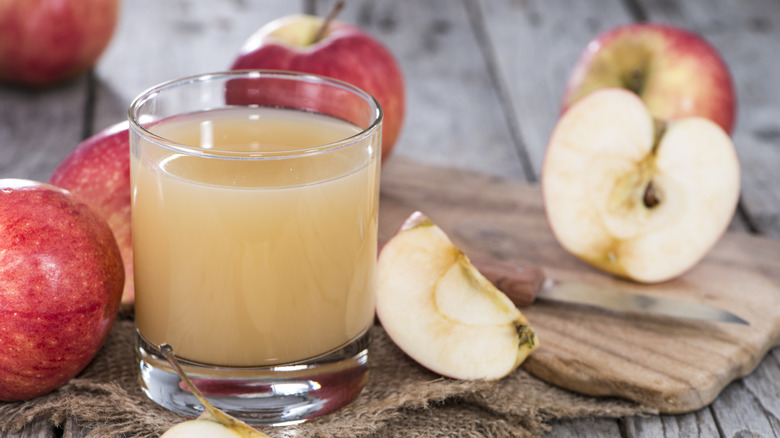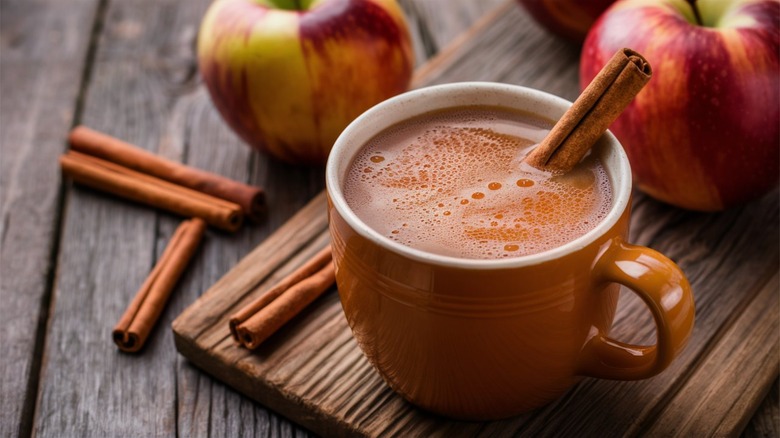Is It Safe To Drink UV-Treated Apple Cider?
Whether you enjoy your apple cider homemade over ice or as the perfect touch to your favorite fall cocktail, apple cider delivers a delicious taste of autumn in every sip. Recently, you may have noticed an uptick in bottles labeled as "UV-treated" rather than the more traditional "pasteurized." You may also be wondering if UV-treated apple cider is safe to drink, given that ultraviolet light can cause sunburns if humans are exposed to it. Thankfully, UV-treated apple cider is completely safe to drink and just as delicious as pasteurized cider.
UV treatment is a food preservation method that uses ultraviolet light to kill off harmful bacteria without the need for any heat. During the treatment process, raw apple cider is hit directly with specific frequencies of ultraviolet light, destroying the DNA of any living microorganisms or pathogens inside the liquid. Not only does it kill harmful bacteria, it also makes the cider shelf-stable for longer, as it kills the bacteria responsible for spoilage. While the process is slowly becoming more popular over time in commercial beverages, UV treatment has been used for decades in some municipal water sources to safely ensure no bacteria make it into your tap water. Compared to pasteurization, UV treatment is incredibly inexpensive, and even low levels of ultraviolet light are effective at destroying microbial life.
Why choose UV-treated apple cider over pasteurized?
There are several benefits to making apple cider safe to consume with UV treatment instead of pasteurization. Pasteurized juice and cider became the norm in the late 1990s after several cases of E. coli were linked to apple juice. The process is effective at making drinks safe to consume because it uses intense heat to quickly kill bacteria and pathogens, including those that cause spoilage. For apple juice, which is often made from cooked apples, pasteurization is ideal since it minimally impacts the juice's flavor.
The biggest differences between apple juice and apple cider are that cider is made from uncooked apples and it's often unfiltered after being juiced, resulting in an opaque, cloudy appearance. Because the apples are raw when juiced for cider, some argue that pasteurization's rapid temperature increase alters the flavor in the beverage. Some also feel that pasteurizing apple cider makes the drink taste less sweet overall. By avoiding heat, UV-treated apple cider retains the original, unprocessed flavors. This in turn creates a safe-to-consume product that can be shipped across the world while still tasting like it's fresh from the orchard.

